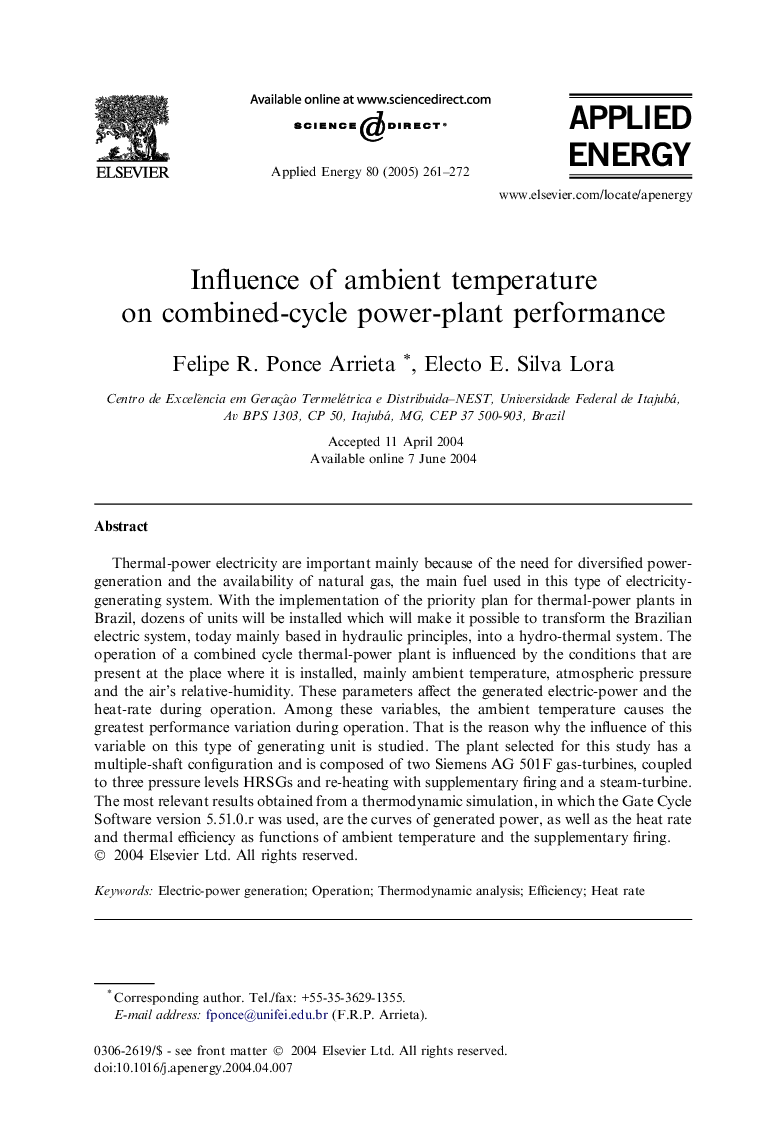| Article ID | Journal | Published Year | Pages | File Type |
|---|---|---|---|---|
| 10282105 | Applied Energy | 2005 | 12 Pages |
Abstract
Thermal-power electricity are important mainly because of the need for diversified power-generation and the availability of natural gas, the main fuel used in this type of electricity-generating system. With the implementation of the priority plan for thermal-power plants in Brazil, dozens of units will be installed which will make it possible to transform the Brazilian electric system, today mainly based in hydraulic principles, into a hydro-thermal system. The operation of a combined cycle thermal-power plant is influenced by the conditions that are present at the place where it is installed, mainly ambient temperature, atmospheric pressure and the air's relative-humidity. These parameters affect the generated electric-power and the heat-rate during operation. Among these variables, the ambient temperature causes the greatest performance variation during operation. That is the reason why the influence of this variable on this type of generating unit is studied. The plant selected for this study has a multiple-shaft configuration and is composed of two Siemens AG 501F gas-turbines, coupled to three pressure levels HRSGs and re-heating with supplementary firing and a steam-turbine. The most relevant results obtained from a thermodynamic simulation, in which the Gate Cycle Software version 5.51.0.r was used, are the curves of generated power, as well as the heat rate and thermal efficiency as functions of ambient temperature and the supplementary firing.
Related Topics
Physical Sciences and Engineering
Energy
Energy Engineering and Power Technology
Authors
Felipe R.Ponce Arrieta, Electo E.Silva Lora,
